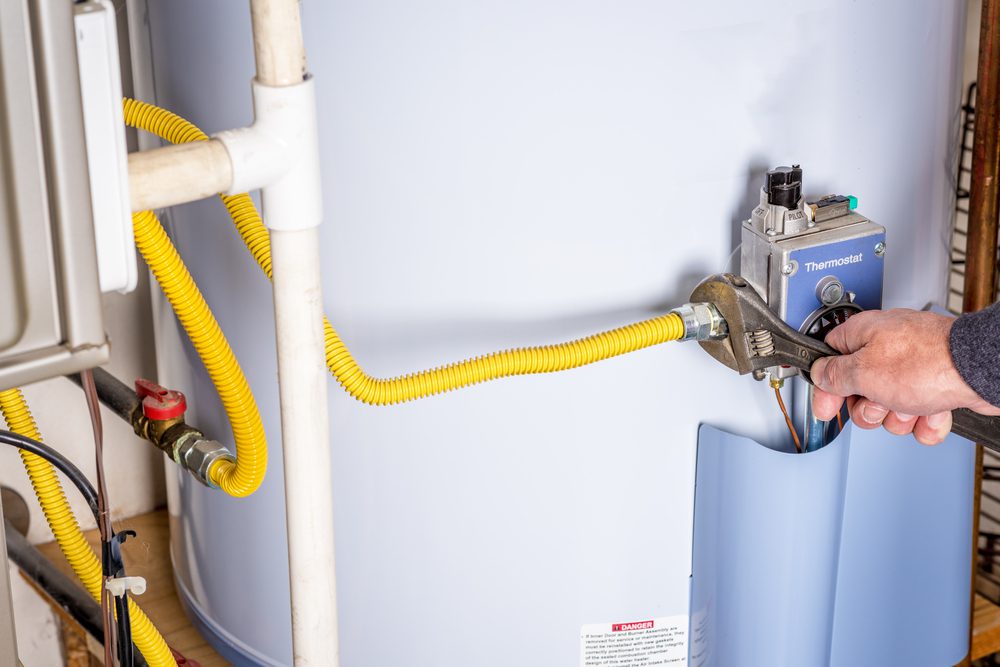How do you feel in regards to Common Problems with Tank Water Heaters?

Imagine starting your day without your regular warm shower. That currently establishes an inadequate tone for the remainder of your day.
Every residence requires a trustworthy hot water heater, however just a few understand how to manage one. One very easy method to keep your hot water heater in leading shape is to look for faults frequently and repair them as soon as they appear.
Keep in mind to turn off your hot water heater before smelling around for mistakes. These are the water heater faults you are more than likely to come across.
Water too hot or also cold
Every water heater has a thermostat that establishes how warm the water obtains. If the water entering into your house is as well hot regardless of establishing a convenient maximum temperature, your thermostat could be defective.
On the other hand, too cold water may be due to a fallen short thermostat, a damaged circuit, or incorrect gas flow. As an example, if you utilize a gas hot water heater with a broken pilot burner, you would get cold water, even if the thermostat is in ideal condition. For electrical heaters, a blown fuse may be the offender.
Not nearly enough warm water
Hot water heater been available in several sizes, depending upon your hot water demands. If you run out of hot water before everyone has had a bath, your hot water heater is also little for your family size. You must think about setting up a larger hot water heater container or selecting a tankless water heater, which takes up much less space and also is a lot more resilient.
Strange sounds
There are at the very least five type of noises you can speak with a water heater, however the most typical analysis is that it's time for the water heater to retire.
First off, you should recognize with the typical seems a water heater makes. An electric heating system might seem different from a gas-powered one.
Popping or banging noises typically indicate there is a slab of debris in your storage tanks, as well as it's time to clean it out. On the other hand, whistling or hissing audios may merely be your shutoffs letting some pressure off.
Water leaks
Leaks could originate from pipelines, water links, shutoffs, or in the worst-case circumstance, the container itself. Over time, water will certainly wear away the storage tank, and find its escape. If this occurs, you need to change your hot water heater immediately.
However, prior to your change your entire container, make sure that all pipelines are in area and that each shutoff works flawlessly. If you still need aid identifying a leakage, call your plumber.
Rust-colored water
Rust-colored water means one of your hot water heater components is rusted. Maybe the anode pole, or the tank itself. Your plumber will have the ability to recognize which it is.
Lukewarm water
No matter exactly how high you established the thermostat, you will not obtain any type of hot water out of a heating unit well past its prime. A hot water heater's efficiency may reduce with time.
You will also get lukewarm water if your pipes have a cross link. This implies that when you activate a faucet, warm water from the heating system streams in along with routine, cold water. A cross link is very easy to place. If your warm water faucets still pursue closing the water heater valves, you have a cross link.
Discoloured Water
Rust is a significant source of filthy or discoloured water. Corrosion within the water container or a failing anode pole could trigger this discolouration. The anode rod secures the tank from rusting on the inside and also should be inspected annual. Without a rod or an effectively functioning anode rod, the hot water promptly corrodes inside the tank. Get in touch with a specialist hot water heater technician to identify if replacing the anode rod will take care of the issue; otherwise, replace your water heater.
Final thought
Ideally, your water heater can last 10 years prior to you require a modification. Nevertheless, after the 10-year mark, you might experience any of these faults extra frequently. At this point, you must include a new hot water heater to your budget.
How To Troubleshoot 3 Common Water Heater Problems in Twin Cities
The Water Heater Is Leaking
A leaky cold water inlet valve A loose pipe fitting A leaky temperature and pressure relief valve A corroded anode rod A cracked tank Turn Off Your Water Heater:
Shut off your gas water heater by turning the gas valve on the unit to the “OFF” position. Shut off your electric water by switching its power off at your electrical panel. Look for a two-pole breaker labeled “water heater” and turn it to the “OFF” position. Move the ball valve connected to the water heater to be perpendicular to the piping at a 90° angle. Look for the Leak:
Depending on whether the water is coming from the tank's top or bottom, you’ll want to look for the leak in different locations.
If the leak comes from the top of the tank, carefully look for water escaping from the cold water inlet valve or loose pipe fittings. Rusted hot and cold water valves can have loose connections with the tank, with water leaking out of them.
https://mspplumbingheatingair.com/blog/how-to-troubleshoot-3-common-water-heater-problems
I was made aware of that report about Common Problems with Tank Water Heaters through an associate on another web blog. If you enjoyed reading our page please be sure to share it. I take joy in reading our article about Common Problems with Tank Water Heaters.
Stay calm, call!